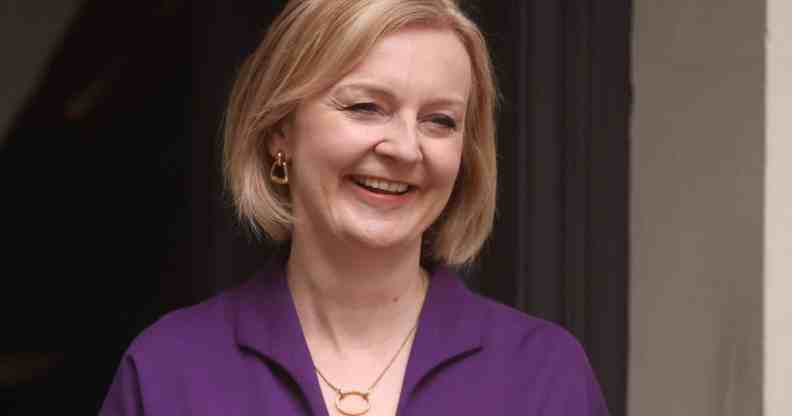Iceland publishes robust LGBTQ+ action plan which puts the UK to shame

Liz Truss. (Getty)
Iceland has published its action plan on LGBTQ+ issues for the years 2022 to 2025, which includes an end to discrimination for queer blood donors, training in LGBTQ+ issues for police, “appropriate and unbiased” healthcare for trans people, and more.
The country’s parliament is also pledging 40 million Icelandic Króna (around £250,000) to support ministries’ LGBTQ+ projects within that time period.
The UK used to have an LGBTQ+ action plan, established in 2018 under Theresa May’s Conservative government, which included meaningful reform of the Gender Recognition Act and the banning of conversion therapy in all its forms.
Neither of those things has come to pass and in 2021, then-equalities minister and now-prime minister Liz Truss suggested the government’s commitment to the plan had been abandoned entirely.
Iceland, which already has strong LGBTQ+ protections in place, and in 2017 was found to be the least homophobic country in the list of members of the Organisation for Economic Co-operation and Development (OECD), pushed forward the 21 progressive measures in June.
A statement about the programme says it is the “first one that focuses solely on LGBTI matters”.
Among the key changes laid out in the action plan is abolishing the blanket ban on men who have sex with men donating blood, a move which Iceland’s Ministry of Health has been considering since 2018.
“The purpose of the action should be to abolish the discrimination which blood donors have been subject to on account of their sexual orientation,” the plan reads.
Particular focus was made on wellbeing in the action plan, with steps to help ensure the health and wellbeing of LGBTQ+ youth, elderly people, and disabled people, as well as tackling LGBTQ+ domestic violence.
The plan states: “The well-being and situation of this group [LGBTI disabled people and LGBTI elders] in society should be considered in terms of isolation and expression.”
It added that it would also study the “well-being of LGBTI people in regions outside the capital area… should be given special consideration, where people are in proximity to a great extent and economic life tends to be undiversified.”
‘All of our people are accepted’
Ahead of a visit from the UN’s independent expert on sexual orientation and gender identity on 26 September, Ambassador Bergdís Ellertsdóttir said: “Human rights are a key priority in Iceland’s foreign policy, and LGBTQ+ rights are a particular focus at home where, as a society, we ensure that all of our people are accepted and enjoy full rights.”
Iceland remains high up on Europe’s “Rainbow Map” of LGBTQ+ friendly countries in 2022, however it was beaten to the top spot by Malta and Denmark, with ILGA Europe noting that Denmark is “taking the lead in filling in anti-discrimination gaps in current legislation”.

